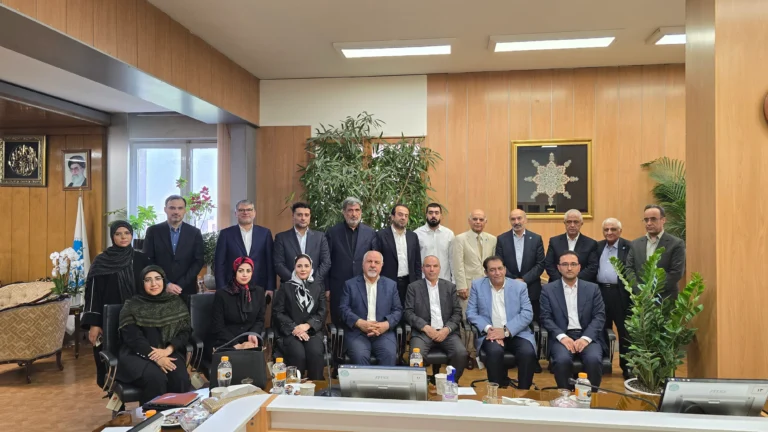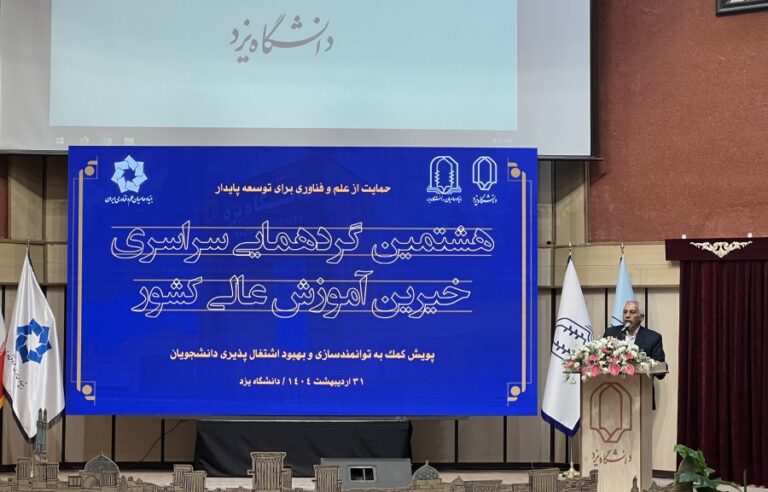Mr. Ebrahim Jamili is one of Iran’s leading entrepreneurs and a generous benefactor of the University of Tehran. He has awarded scholarships to 200 talented students and pledged to support 100 more through honor-based loans. At the Fourth National Festival of Entrepreneurial Leaders—Iran’s largest event honoring entrepreneurship—he was recognized as one of the exemplary entrepreneurial leaders. Here are highlights from his conversation:
- At first, please introduce yourself.
“I was born in February 1957 in Zanjan, into an upper-middle-class family. My father was highly educated and deeply knowledgeable in history, especially Islamic history. My mother was a homemaker. My grandfather was a landowner in Zanjan province in Iran and known for his charitable deeds. I come from a large family with seven brothers and two sisters.
As a teenager, I worked during summers, initially alongside my brothers. Later, I worked as a journalist and eventually managed several local publications in Zanjan. In 1981, I left journalism and founded a food distribution company. I hold a bachelor’s degree in commerce.
After the establishment of the Chamber of Commerce, I remained active in that field and later entered the capital market and stock exchange. Over the past decade, I’ve founded ten factories, currently employing around 1,000 people. I am the country’s largest producer of lead and zinc concentrate, and I also manufacture zinc ingots, lead ingots, potassium sulfate, agricultural fertilizers, and sodium chloride. I’ve faced bankruptcy three times, but I never gave up and kept moving forward.
- What strategy helped you turn failure into success?
“One of the most important turning points was founding a charitable foundation in Zanjan. Dr. Mosallanejad opened a new chapter in my life—one that brought me great joy. He once told me, “Since you’re already doing good deeds, why not establish a foundation?” At the time, I was financially struggling and on the brink of bankruptcy, but I made the decision to pursue it. I applied for the license, and on November 4, 2007, the Jamili Charity was officially established. From that moment, my financial situation improved steadily, and soon the foundation was supporting over 1,000 individuals.
- In your view, what is the most urgent area for philanthropy today?
Schools and universities. My focus is on education. We must build people—because it’s people who build nations. If we start with students and nurture them properly, our country will flourish. But if a prosperous country is handed over to unqualified individuals, it will inevitably be ruined.
- What advice do you have for university students?
Engage in hands-on work. Don’t just sit behind a computer or limit yourselves to reading books. Get involved in practical activities—even if you fail. Learn how to tighten a bolt, how to negotiate. Whatever field you pursue, start doing it. Learn how to trade. If a student wants to sell something, they must learn how to sell it. I’ve always gained experience through practical work. One should never be ashamed. Once, I entered a manager’s office in a factory and saw it was filthy. I asked for a broom and cleaned it myself. It wasn’t my job, and I don’t believe managers should do that regularly—but they should know how to do it. They should have confidence and not be afraid. In our country, one tactic is to intimidate others to reduce competition. But you must be confident. Being cautious is different from being fearful. And above all, never lose hope.
- Thank you for taking the time to speak with us.




